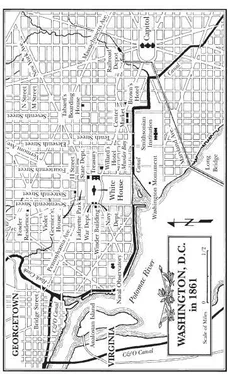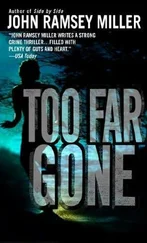John Miller - The First Assassin
Здесь есть возможность читать онлайн «John Miller - The First Assassin» весь текст электронной книги совершенно бесплатно (целиком полную версию без сокращений). В некоторых случаях можно слушать аудио, скачать через торрент в формате fb2 и присутствует краткое содержание. Жанр: Исторический детектив, на английском языке. Описание произведения, (предисловие) а так же отзывы посетителей доступны на портале библиотеки ЛибКат.
- Название:The First Assassin
- Автор:
- Жанр:
- Год:неизвестен
- ISBN:нет данных
- Рейтинг книги:3 / 5. Голосов: 1
-
Избранное:Добавить в избранное
- Отзывы:
-
Ваша оценка:
- 60
- 1
- 2
- 3
- 4
- 5
The First Assassin: краткое содержание, описание и аннотация
Предлагаем к чтению аннотацию, описание, краткое содержание или предисловие (зависит от того, что написал сам автор книги «The First Assassin»). Если вы не нашли необходимую информацию о книге — напишите в комментариях, мы постараемся отыскать её.
The First Assassin — читать онлайн бесплатно полную книгу (весь текст) целиком
Ниже представлен текст книги, разбитый по страницам. Система сохранения места последней прочитанной страницы, позволяет с удобством читать онлайн бесплатно книгу «The First Assassin», без необходимости каждый раз заново искать на чём Вы остановились. Поставьте закладку, и сможете в любой момент перейти на страницу, на которой закончили чтение.
Интервал:
Закладка:
“Do you really think these guys want to destroy the Capitol?” asked Springfield.
“I have no idea what to think,” said Rook. “But I don’t want to rule out anything either. Davis and Stephens concern me. They have come to Washington with assumed names, we have overheard them say provocative things, and they’ve traveled through a part of the Capitol that would have interested Guy Fawkes if he were a secessionist today. Now they’re meeting with Violet Grenier, whose antipathy toward the Union is well known. It doesn’t take a lot of imagination to suspect that trouble may be afoot.”
They discussed the possibility that Davis and Stephens were targeting the Capitol. How many explosives would it take? Where would they have to be placed? What could they possibly hope to achieve?
“If they actually bombed the Capitol,” said Clark, “it would wipe out any sympathy there is in the North for the South.”
Rook considered this. It seemed plausible. “They would probably ignite a war,” he said. “But maybe a war is what they want, for whatever foolish reason.”
The door to Grenier’s home opened. Davis and Stephens emerged and walked in the direction of Brown’s and the Capitol.
The soldiers had discussed what they would do when Davis and Stephens reappeared. Springfield stayed put. His job was to monitor Grenier’s home for further activity. Clark walked briskly to Brown’s, ahead of Davis and Stephens, on the assumption that this was where they were going. Rook waited for them to pass. When they were a couple hundred feet ahead of him, he followed.
Davis and Stephens walked down Fifteenth Street and turned left on Pennsylvania Avenue. They seemed unaware of the fact that anybody might be tracking their movements, which made Rook think that they were possibly overconfident. Or perhaps, he thought, they really are not plotting anything at all. They could be visitors from out of town who wanted to see the Capitol and an old friend. Rook knew that he lacked any real evidence against them. All he had were a few vague suspicions and wild speculations. Was he too rash to think of Guy Fawkes? He could hear General Scott berating him for wasting his time in this pursuit and Locke snickering in the background.
But Rook did not intend to tell Scott about today’s activities. He would not include it in his next briefing at the Winder Building. He would mention other things: troop positions, activity on the bridges, reports from Virginia-anything but this.
Rook knew he could not spend many more days tracking the likes of Davis and Stephens. If he did, Scott would find out somehow. Easley already had recognized him at the Capitol. Rook doubted that he could survive the general’s wrath, not after the explicit order to quit surveillance. He would have to do something quickly to learn more about Davis and Stephens, or to force their hand in some way.
Two blocks from Brown’s, Rook paused. As he had expected, Davis and Stephens walked straight to the hotel. By now, he figured, Clark would be there. He could take over observations for a few minutes.
Meanwhile, Rook examined the storefronts on his side of the Avenue. He was standing almost directly in front of what he was looking for: Brady’s National Photographic Art Gallery. In addition to serving as a studio for Mathew Brady, the up-and-coming photographer, it sold small pictures of famous people. Rook wanted to buy one of the president. Then he would have a chat with Davis and Stephens.
With help from Lucius, Bennett stepped onto the cart. “Greetings,” he said, with outstretched arms and a big smile. The slaves erupted in approval. Their noise energized Bennett, who now laughed with joy at the reception they gave him. “It’s good to be here.” More cheers. Someone in the front replied, “Welcome back, Mr. Bennett.”
“Thank you very much,” said the plantation master. “Yes, it’s good to be back. And it’s good to see you. All of you look wonderful.” There were a few scattered handclaps. “I’m returning a little bit later this spring than I had intended. There is much ado in Charleston this year!” He paused, seeming to expect another outburst, as if he were addressing a convention of slaveholders. Instead, there almost was no response at all.
“Good to be back, yes, good to be back,” he said, almost to himself. Then he recovered. “Shall we see what I’ve brought from the city?”
This met with a better reception-the applause returned, and so did Bennett’s smile. He reached into the box and pulled out something big and brown. He fumbled with it for a moment and then announced, “Trousers!” He looked at the crowd. “Who would like a new pair of trousers?”
A balding man who appeared about forty years old stepped forward. His own pants were shredded at the bottom of their legs. There was a hole at one of his knees. “Willie! It’s good to see you, my boy,” shouted Bennett as he tossed the trousers to him. “Looks like you could use a pair!”
Willie caught the pants. “Thank you, Mr. Bennett,” he said.
Bennett continued with more trousers and went on to a box of shirts. Then shoes. Then belts. Then hats. There was no method to how he went about it. He just moved on to the next box and reveled in the task of passing out each item individually. Tate tried to make sure the goods went to the slaves who needed them the most, and he had to settle a few small disputes over who received what. Bennett went on interacting with each of the recipients, albeit briefly, and made sure to say a slave’s name every time. Lucius noticed that Bennett missed a few of the names, using one incorrectly or having to be reminded of it. In years past, he had almost never made a mistake.
Bennett was most of the way through the boxes when it happened. He lifted the top off the next one and announced, “Dresses!” He pulled out an attractive maroon garment, and a few of the women stepped forward in anticipation. “Ah, yes,” said Bennett, admiring the piece of clothing. “This one is for Portia! Where’s Portia?”
Lucius looked down at the ground and kicked the dirt.
“Portia? Where are you?”
No one came forward.
“Portia?”
There was now a general commotion among the slaves. When it became clear that Portia was not among them, they threw suspicious glances at one another. Most of them said nothing. A few cupped their hands and whispered into the ears of their neighbors.
“Portia?”
Lucius peered into the crowd, pretending to look for her. Then he caught the eye of Sally, Big Joe’s mother. She was staring right at him. It was a hard look, full of anger. Her eyes narrowed, and she shook her head back and forth, almost imperceptibly. At that moment, Lucius knew that she knew.
“Lucius, where is Portia?”
The old slave looked up at his master, still standing on the cart holding the maroon dress.
“I’m sorry, sir, what were you saying?”
“Where’s Portia?”
“My granddaughter?”
Bennett raised his eyebrows. “There’s only one Portia on this farm.”
“Yes. Of course,” said Lucius. “I’m sorry, sir. She told me she wasn’t feeling well this morning and wanted to take a little walk. I should have told you. I forgot to do that. I’m sorry, sir.”
Bennett said nothing for a moment. He just stared at Lucius.
“A little walk this morning? Why isn’t she back?”
“Maybe she took a nap. She didn’t look very well.”
“I see. That’s peculiar. She’s a healthy girl, isn’t she?”
“Yessir. Most of the time anyway.”
“And you forgot about this, even though we spoke about her just a little bit ago?”
“I’m sorry.”
Bennett dropped the maroon dress onto the floor of the cart. “Mr. Tate,” he cried, “please help me down from here.” The overseer hurried to the cart and assisted his boss. “Thank you, Mr. Tate. I am getting a bit tired. Perhaps you will finish this business for me?”
Читать дальшеИнтервал:
Закладка:
Похожие книги на «The First Assassin»
Представляем Вашему вниманию похожие книги на «The First Assassin» списком для выбора. Мы отобрали схожую по названию и смыслу литературу в надежде предоставить читателям больше вариантов отыскать новые, интересные, ещё непрочитанные произведения.
Обсуждение, отзывы о книге «The First Assassin» и просто собственные мнения читателей. Оставьте ваши комментарии, напишите, что Вы думаете о произведении, его смысле или главных героях. Укажите что конкретно понравилось, а что нет, и почему Вы так считаете.












